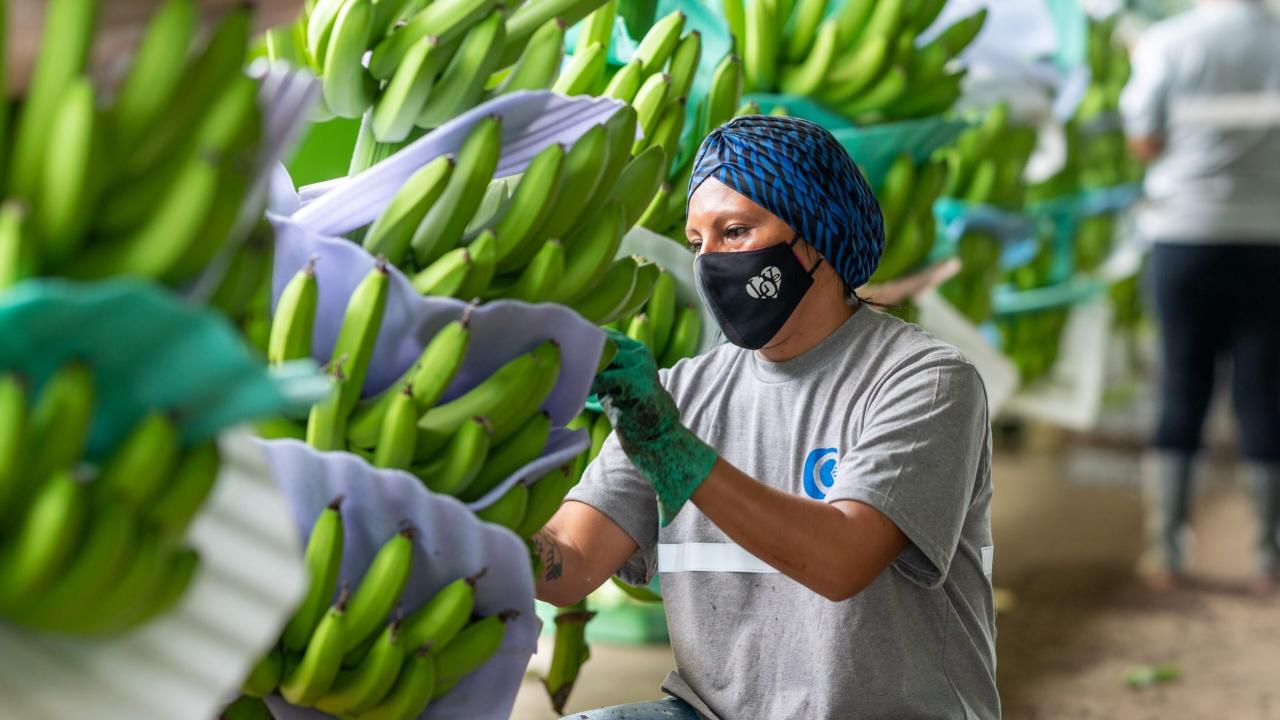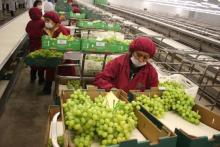
The banana export sector has not ruled out renegotiating contracts to avoid affecting fruit consumption in the U.S.
The new tariff imposed on Ecuadorian products to enter the United States, which for Ecuador is 10%, forces various sectors to define strategies to mitigate the impact, some more than others. This new tariff primarily impacts the main export products entering the country, such as shrimp, bananas, cocoa, flowers, fish, among others. That market currently receives more than 1,290 export products from Ecuador.
In this regard, there are products whose sales to that market are exclusively under contracts, which they began renegotiating with their clients, as they were signed before the imposition of the new tariff. One of these is shrimp, according to José Antonio Camposano, president of the National Chamber of Aquaculture (CNA). "At this very moment, companies are discussing with their buyers the issue of contract terms," he stated last Friday. Shrimp is the leading Ecuadorian product in the US market, which generated US$1.546 billion in exports in 2024.
Bananas are another product sold to the U.S. market only under contracts, although it is still too early to determine new conditions based on this recent tariff, said Richard Salazar, executive director of the Banana Marketing and Export Association of Ecuador (Acorbanec). In 2024, bananas were the second most exported Ecuadorian product to the U.S. market, with US$651 million.
Another trade group, the Ecuadorian Banana Exporters Association (AEBE), noted as soon as the tariff measure was published on April 2nd that it has a significant impact globally, but does not significantly affect the competitiveness of Ecuadorian bananas compared to its main competitors. AEBE noted that Ecuadorian bananas entered the US at 0% before the measure. However, it emphasized that the tariffs are general in nature and, although they have an impact, currently, Ecuador, Colombia, Guatemala, and Costa Rica—the main competitors in the US market—are subject to the same minimum tariff of 10%, even those countries with trade agreements in force. "In this context, all operate under comparable tariff conditions," the trade group emphasized.
Meanwhile, if these talks do take place, Salazar indicated that they would focus instead on avoiding an impact on fruit consumption in the U.S. "We are evaluating it. While it's true that the tariff is already being agreed upon, the idea is for consumers to be affected as little as possible, even though the contracts have already been signed," he said.
In this context, he indicated that the sector is open to talks and that stakeholders are likely to meet to adjust contracts, in parallel with other strategies seeking to mitigate the impact of the tariff. "We are already working with government authorities to approach the American government, and conversations are already underway. Discussions have already begun to see how we can resolve this issue of the tariffs imposed by the United States," the leader said.










